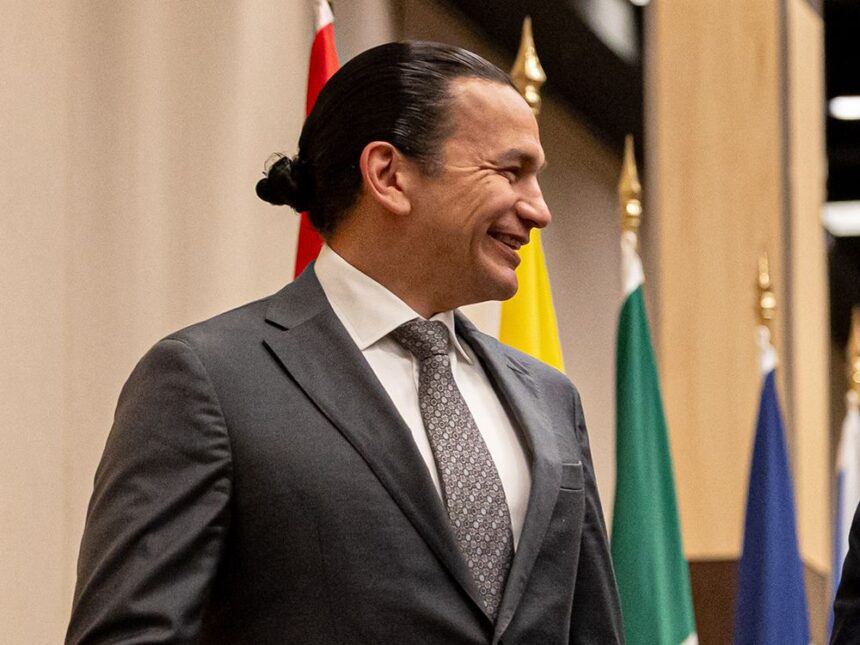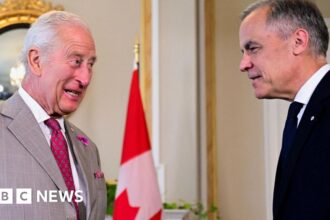In a landmark commitment that bridges Canadian compassion with international solidarity, Manitoba has stepped forward to play a pivotal role in rebuilding war-torn Ukraine. Premier Wab Kinew announced Thursday that the province will establish formal ties with Ukraine’s Sumy region, providing technical expertise and resources to help reconstruct areas devastated by Russia’s ongoing military offensive.
“This is about Manitoba standing up and being counted when democracy is under threat,” Premier Kinew declared at a press conference alongside Ukraine’s ambassador to Canada, Yuliya Kovaliv. The partnership represents more than diplomatic symbolism—it marks a tangible Canadian contribution to Ukraine’s future amid one of Europe’s most devastating conflicts since World War II.
The Sumy region, which shares a 564-kilometer border with Russia, has endured relentless bombardment since the invasion began in February 2022. Infrastructure damage has been catastrophic, with hospitals, schools, and essential utilities reduced to rubble in many areas. Manitoba’s assistance will focus on rebuilding these critical services while providing governance expertise to local administrators working under extraordinarily difficult circumstances.
Manitoba’s Ukrainian heritage runs deep, with over 180,000 residents tracing their roots to the eastern European nation. This cultural connection amplifies the province’s commitment, which will include sending technical experts to assess immediate needs while developing longer-term reconstruction strategies.
“The people of Sumy are living under daily missile attacks while trying to maintain essential services,” Ambassador Kovaliv explained. “Manitoba’s expertise in infrastructure development, particularly in harsh climates, will be invaluable as we work to restore basic necessities like clean water, electricity, and healthcare facilities.”
The partnership follows similar commitments from other Canadian provinces, including Saskatchewan’s pledge to help rebuild the Chernihiv region. These provincial initiatives complement federal government efforts, which have included over $9 billion in financial, military, and humanitarian support since the conflict began.
Manitoba’s approach will emphasize sustainability and resilience in reconstruction efforts. “We’re not just rebuilding what was destroyed,” said Infrastructure Minister Lisa Naylor. “We’re helping create infrastructure that can withstand future challenges while meeting modern standards for efficiency and accessibility.”
The province plans to leverage its experience in managing flood recovery and infrastructure development in remote communities—expertise particularly relevant to Ukraine’s current challenges. Engineers, urban planners, and public administration specialists from Manitoba will collaborate with Ukrainian counterparts on projects ranging from water treatment facilities to healthcare infrastructure.
Financial details remain under development, with the province indicating that initial funding will come from existing budgets while longer-term commitments will be determined based on needs assessments. The partnership agreement includes provisions for accountability and transparency in how resources are allocated and utilized.
Premier Kinew emphasized that Manitoba’s commitment extends beyond the current conflict. “This is about standing with Ukraine not just during the war, but through the difficult years of rebuilding that will follow,” he said. “When democracy and sovereignty are threatened anywhere, Manitobans understand the importance of taking a stand.”
As Ukraine faces its third winter of war with damaged heating infrastructure and frequent power outages, Manitoba’s assistance arrives at a critical juncture. The initiative raises important questions about how regional governments can contribute to international stability: In an increasingly interconnected world, should provincial governments play a more direct role in international humanitarian efforts, or should such initiatives remain primarily federal responsibilities?


















